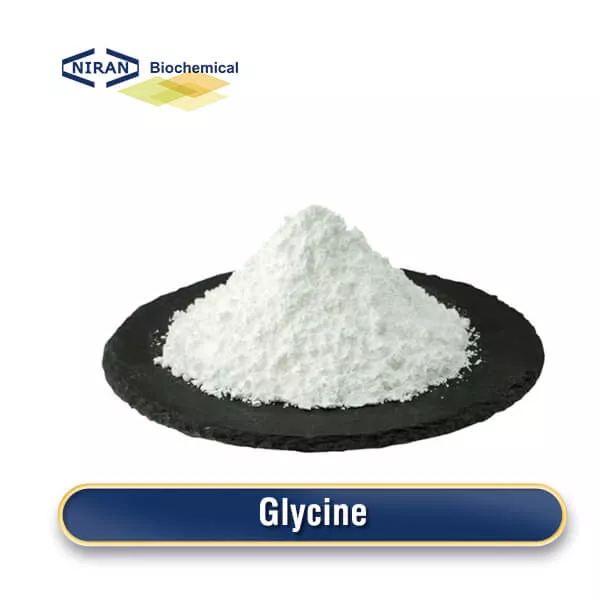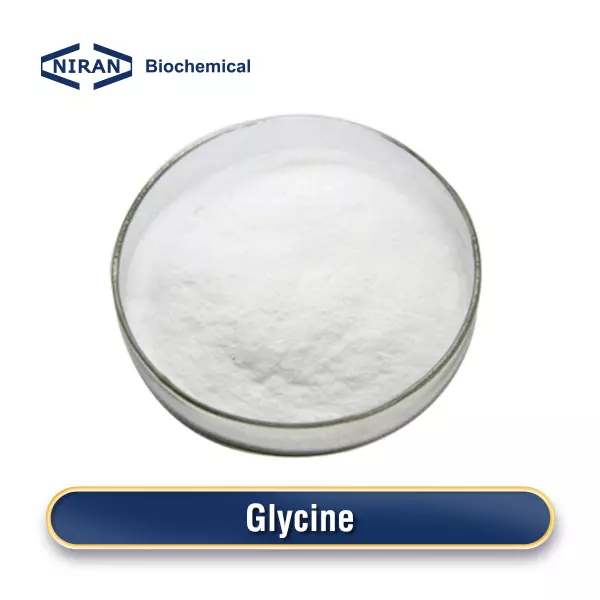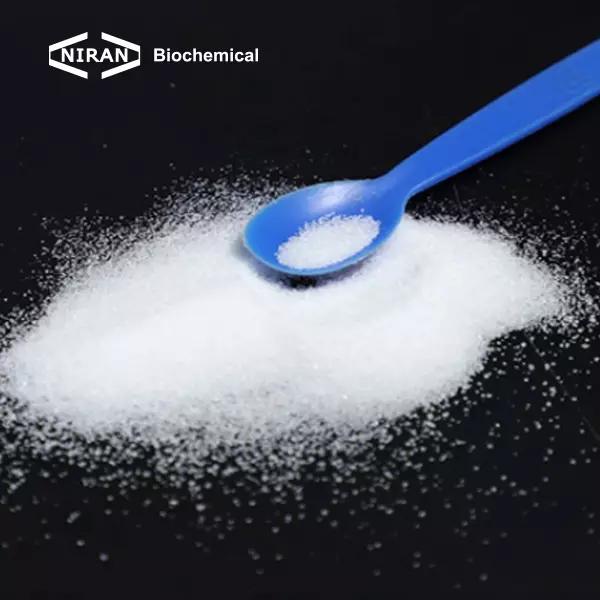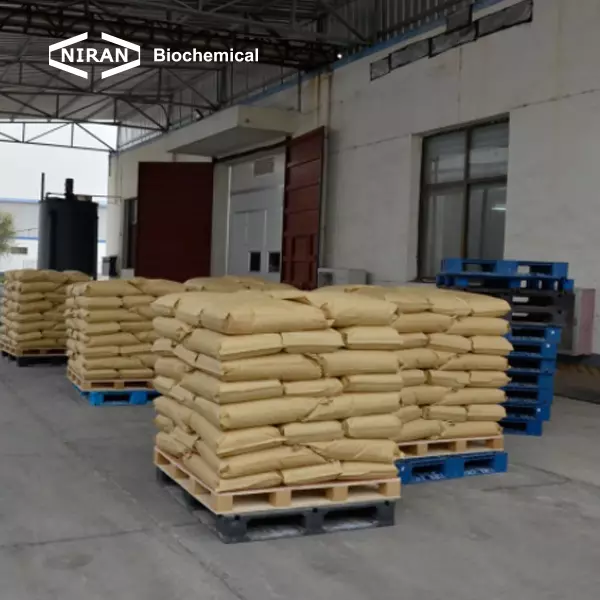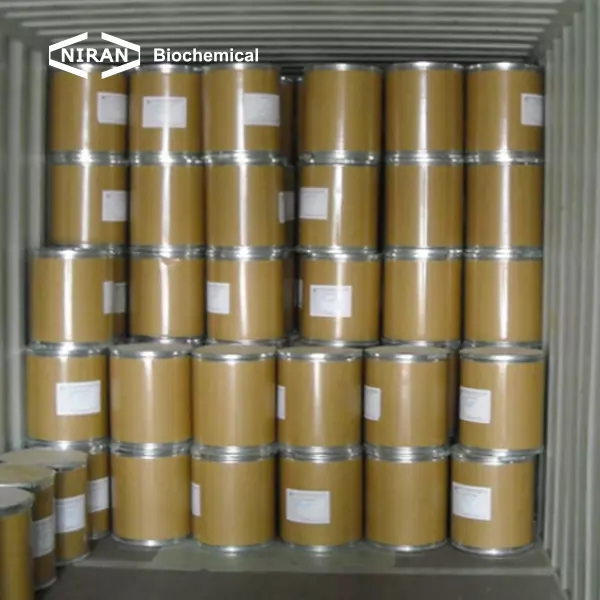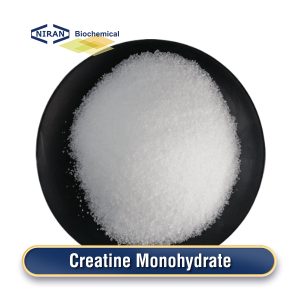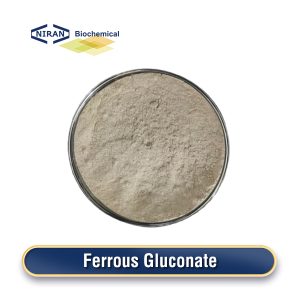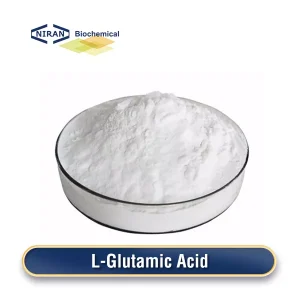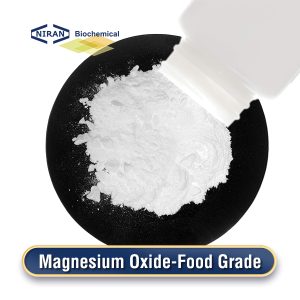Niran Biochemical
YOUR RELIABLE FOOD INGREDIENTS
Send Inquiry
Home » Products » Nutrition Enhancers » Glycine
Glycine
- CAS: 56-40-6
- Chemical Formula: C2H5NO2
- Certification: KOSHER, ISO, HALAL, FSSC22000, BRC, etc.
- MOQ: 1000KG
- Shelf Life: 2 Years
Inquire Product
Product Description
What Is Glycine?
Glycine is a crystalline powder that appears white to off-white and is a non-essential amino acid. It dissolves quickly in water, has no odor, and is non-toxic. Many industries, including food, medical, and business, can use it.
There are two main preparation processes for glycine. The first is the fermentation method, which uses microorganisms (such as specific bacteria or yeast) to convert raw materials such as sugars into glycine in a controlled culture environment. This technique uses a green production process and is friendly to the environment. It can produce high-purity glycine and is suitable for applications with high requirements for food safety and purity.
However, the fermentation method has a long production cycle and high requirements for equipment and technology.
The second is to use chemical synthesis to synthesize glycine from simple chemical raw materials through the carbamate method or amino acid reduction method. Large-scale industrial production can benefit from this method’s high production efficiency, however waste treatment and the possibility of chemical byproducts are required.
In general, chemical synthesis is still the mainstream process in the production of food-grade glycine because it can meet the needs of large-scale production.
Related Parameters:
| Items | Specification |
| Assay( C2H5NO2) (%) | 98.5~101.5 |
| Loss on drying (%) | ≤0.2 |
| Residue on ignition(as sulphated ash)(%) | ≤ 0.1 |
| Chloride(As Cl) (%) | ≤0.02 |
| Sulphate(As SO4) (%) | 0.0065 |
| Ammonium(As NH4) =< % | 0.01 |
| Arsenic( As As) =< % | 0.0001 |
| Lead ( As Pb) =< % | 0.0005 |
Recommended Dosage:
| Food name | Maximum usage(g/kg) |
| Sports drinks | 0.5-1 g/kg |
| Yogurt | 0.5-1 g/kg |
| Dairy products | 0.3-0.5 g/kg |
| Ice cream | 0.5-1 g/kg |
| Biscuits | 0.3-0.5 g/kg |
| Juice drinks | 0.5-1 g/kg |
| Sauces | 0.3-0.5 g/kg |
| Baked goods | 0.5-1 g/kg |
| Chocolate and candy | 0.3-0.5 g/kg |
| Jelly and pudding | 0.5-1 g/kg |
Glycine Has A Wide Range Of Uses
- Enhance the taste characteristics of food: Glycine, as an amino acid, has the function of a sweetness enhancer, which can significantly enhance the sweetness of food and reduce dependence on other sweeteners.
- Antioxidant: Glycine can be used as an antioxidant in food processing, which helps to extend the shelf life and stability of food and reduce the oxidation reaction of food.
- Acid-base regulator: Because of its alkaline composition, it can be employed as an acid-base regulator in food processing to better preserve food’s flavor and pH levels.
- Enhance the nutritional value of food: As an amino acid, glycine is one of the important components of protein, which can enhance the nutritional value of food and is beneficial to health.
- Enhance the structure and stability of food: In processed foods, glycine can improve the structure and texture of food, enhance its stability and taste, and make it more suitable for storage and transportation.
User Asked Question:
Q: What symptoms will occur if the human body lacks glycine?
A: 1. Immune system problems: Glycine is involved in the synthesis of thymus, which is an important molecule that regulates the function of the immune system. Glycine deficiency may affect the normal function of the immune system and increase the risk of infection and inflammation.
2. Nervous system problems: Glycine has a neuroinhibitory effect in the central nervous system and can regulate the balance of neurotransmitters. Glycine deficiency may affect nerve conduction, leading to emotional instability, anxiety, insomnia and other nervous system problems.
3. Digestive system problems: Glycine is involved in the synthesis of collagen, which is an important component for maintaining the structure and function of the digestive tract mucosa. Glycine deficiency may cause damage to the digestive tract mucosa, causing indigestion, gastrointestinal inflammation and other problems.
4. Metabolic problems: Glycine participates in multiple metabolic pathways in the body, including sugar metabolism and fatty acid metabolism. Glycine deficiency may affect energy metabolism in the body, leading to decreased physical strength and increased fatigue.
5. Muscle problems: Glycine plays an important role in building muscle protein and is one of the important energy reserves and supply substances in the body. Lack of glycine may affect the normal function of muscles, leading to muscle atrophy, strength loss and other problems.

